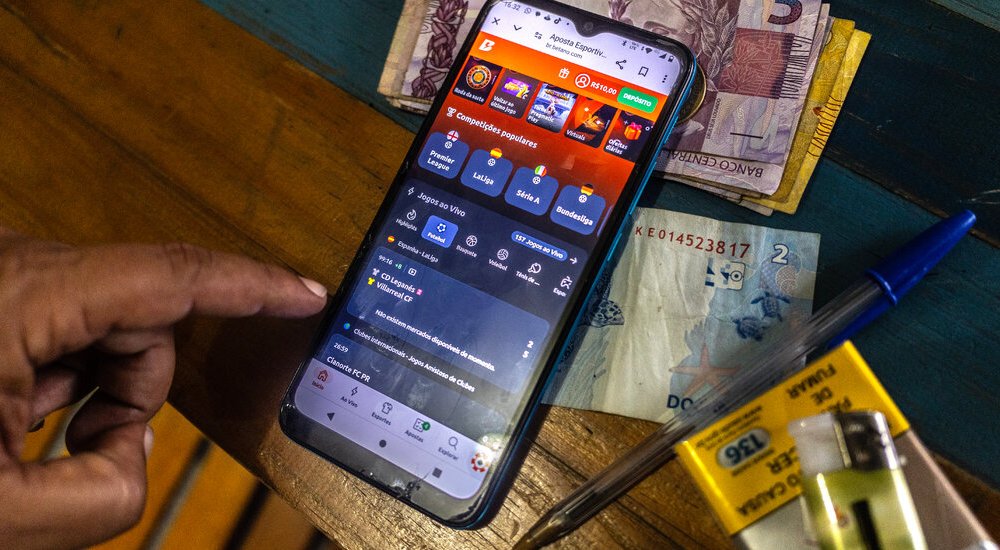Taiza Carine da Costa got her first taste of gambling when she was just 9.
She grew up in the rundown fringes of Rio de Janeiro, where her godparents would send her down the block, a few coins in hand, to bet on a popular lottery that, though illegal, has been a staple of life in Brazil for over a century.
The habit stuck and, as an adult, she would bet daily on the game, in which players place wagers on animals represented by sets of numbers. Like many Brazilians, whenever she dreamed of a creature, she saw it as a sign to bet on the lottery, known as “jogo do bicho” — or animal game — in Portuguese.
“If I dream, I bet,” said Ms. Costa, 37, a clothing vendor.
But, lately, Ms. Costa is turning to a different game of chance that is at her fingertips around the clock: a digital slot machine offering big rewards if she can draw three matching symbols.
Tigrinho, or Little Tiger in Portuguese, mimics a popular Chinese slots game and has led the way as mobile betting apps have exploded in popularity since Brazil legalized digital gambling in 2018. Ms. Costa plays Little Tiger every day, and her gambling — and her losses — has picked up as a result. She estimates she has lost roughly $80,000 over two years on the app.












































